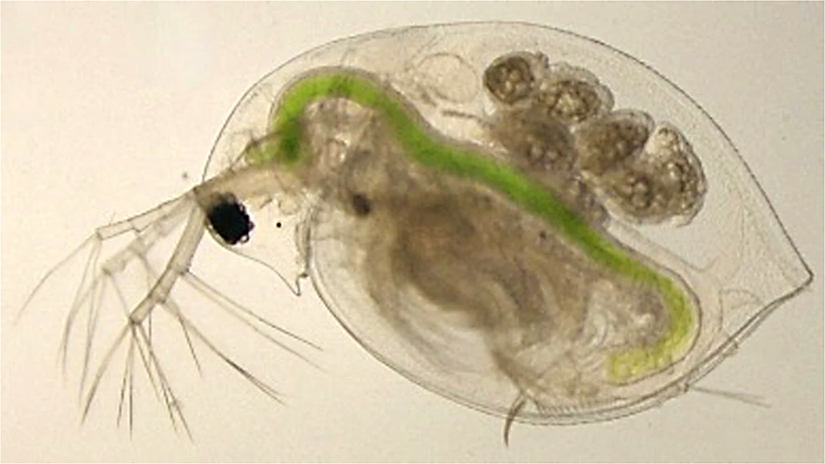Maternal effects occur when mothers influence the phenotype of their offspring through means other than genetic inheritance. Two types of maternal effects can be distinguished. In maternal genetic effects, the mother’s genotype causally influences the phenotype of the offspring. In contrast, in maternal environmental effects, the mother’s environment causally influences the phenotype of the offspring, and as such is a transgenerational form of phenotypic plasticity.
Maternal effects have been shown to play influential roles in many evolutionary and ecological processes. However, understanding how environmental stimuli induce within-generation responses that transverse across generations remains elusive, particularly when attempting to segregate confounding effects from offspring genotypes. In their new review article titled "Maternal effects in the model system Daphnia: the ecological past meets the epigenetic future", former graduate student Trenton Agrelius and his mentor Dr. Jeff Dudycha synthesize literature regarding resource- and predation-driven maternal effects in the model system Daphnia, detailing how the maternal generation responds to the environmental stimuli and the maternal effects seen in the offspring generation(s). A fascinating read highlighted as an “Editor’s Choice” paper and selected for the journal’s cover photo!
